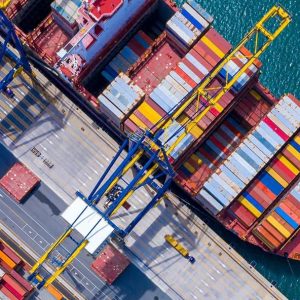
The recent Spring Budget brings important changes for the UK’s logistics, maritime, and transport sectors. Here’s a breakdown of what it means for businesses in our industry.
Fuel Duty Freeze
Good news, fuel duty stays frozen for another year, keeping the 5p per litre reduction in place. This will help logistics and transport companies manage fuel costs, which make up a big part of our budgets.
Tax Breaks on Leased Assets
The government plans to extend full expensing to leased assets, meaning businesses can claim 100% tax relief on certain investments, like vehicles, shipping containers, and port upgrades. This could encourage more companies to modernise their fleets and infrastructure.
Increased Costs for HGVs
From April 2025, Vehicle Excise Duty (VED) and the HGV Road User Levy will go up with inflation. While the fuel duty freeze helps, these rising costs could impact budgets.
Higher Employer National Insurance
Starting in April 2025, employer National Insurance will rise to 15%, and the threshold for contributions will drop from £9,100 to £5,000. Combined with expected increases in wages, this means higher employment costs for businesses.
Infrastructure Investment
The government is putting £4.8 billion into roads and highways, with £1.6 billion specifically for fixing potholes. There’s also funding for upgrading ports and supporting green shipping initiatives, which could benefit maritime trade.
Warehouse & Supply Chain Modernisation
The budget offers incentives for businesses investing in automation and AI-driven warehouse management systems. This could enhance efficiency in fulfilment centres and streamline supply chain operations. However, rising operational costs could offset some of these benefits, making it crucial for businesses to balance investment with cost control.
Support for Maritime Industry
The budget includes investment in sustainable shipping and port improvements. Efforts to cut carbon emissions in the industry through new fuel research and greener technologies align with the UK’s environmental goals. However, we are calling for clearer long-term investment plans.
Skills & Apprenticeships
An extra £300 million is going into further education, with £40 million for shorter apprenticeships. However, there’s no clear update on when the Apprenticeship Levy will become a more flexible Growth and Skills Levy. Many in our industry want better support for workforce training. Programmes such as Warehouse to Wheels or the Maritime Transport Careers Programme.
In conclusion this budget offers both benefits and challenges. The fuel duty freeze and tax breaks on leased assets are positives, but rising taxes, wage costs, and HGV charges could strain budgets. Businesses in logistics, maritime, and supply chains must carefully plan to stay competitive in a changing market.









